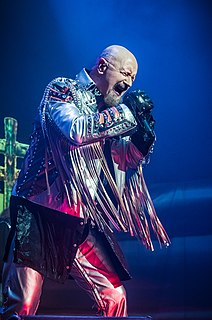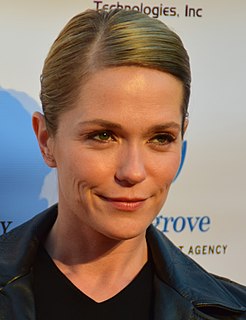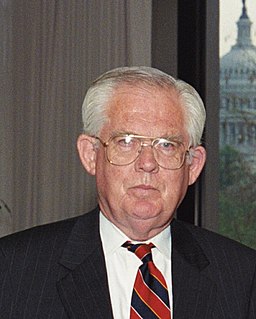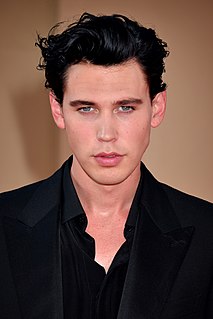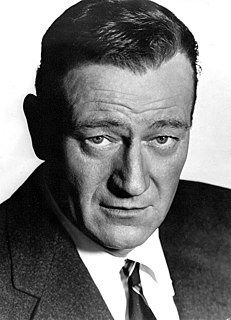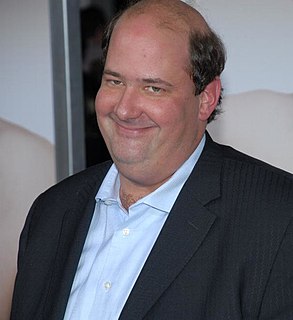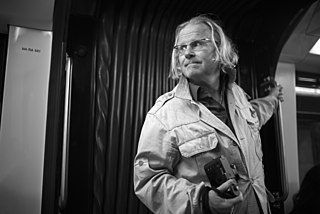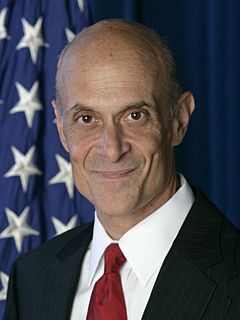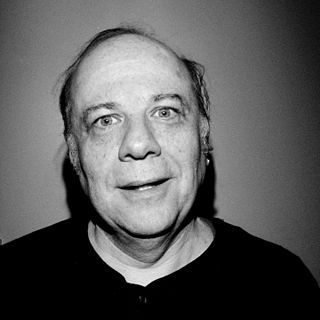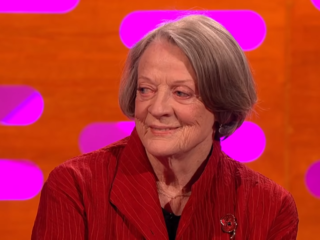Top 819 Cameras Quotes & Sayings - Page 14
Explore popular Cameras quotes.
Last updated on November 13, 2024.
It tore us up emotionally hearing someone say to the judge and the cameras that this is a band that creates music that kills young people. We accept that some people don't like heavy metal, but we can't let them convince us that it's negative and destructive. Heavy metal is a friend that gives people great pleasure and enjoyment and helps them through hard times.
“Whether there's any 'subliminal effect' from the court, I don't know, but we certainly couldn't let it interfere with our creativity.
Once I saw Paris Hilton leaving a restaurant in Hollywood and the paparazzi cameras were all over her. It looked so unpleasant. It wasn't because she didn't look sensational - she was that perfect combination of fashionable and slutty - it was because the paparazzi guys were shouting these insanely rude and intrusive questions at her. Like, asking her who she was sleeping with and stuff. I was kind of interested in the answer, so I was glad they asked, but it was still gross.
The second death. To think that you died and no one would remember you. I wondered if this was why we tried so hard to make our mark in America. To be known. Think of how important celebrity has become. We sing to get famous; expose our worst secrets to get famous; lose weight, eat bugs, even commit murder to get famous. Our young people post their deepest thoughts on public web sites. They run cameras from their bedrooms. It’s as if we are screaming Notice Me! Remember Me! Yet the notoriety barely lasts. Names quickly blur and in time are forgotten.
When you start using more expensive cameras, everything around it gets more expensive, which is something we hadn't necessarily taken into account beforehand. Your lighting package gets way more expensive, and then coloring it is going to be more expensive. So I think all of that will essentially be cushioning our camera package. Budgets beget budgets, and expenses beget expenses.
I think people are wrong to do it, to compare him to your way of wanting to do it. If you're passionate about it, do it and do it your way. It's not always going to be in front of the cameras after a football game - that was the way I did it. Somebody else has a different way, and that's [James] LeBron, and I know who he is. And I can't get into specifics, but it did upset me that people were calling him out for that because they were just wrong.
It's good to be able to deal with it [anger] somehow other than drinking, fighting, crashing cars, hitting your kid, your wife, your husband, your whatever. Paintbrushes, pens, movie cameras, guitars, microphones, typewriters -- these are good things. Weights. These are positive ways, good ways to deal with anger, frustration, alienation, rage. 'Cause all the other ways do nothing but hurt people.
Abby must have been the one who found the safe house, because Townsend didn't like it. "The building across the street is under construction," he snarled as soon as we'd carried our bags inside. "The elevator has key card access, and I've hacked into the surveillance cameras from every system on the block," Abby argued. "We have a three-hundred-sixty-degree visual." "Excellent." Townsend dropped his bag. "Now the circle can see us from every angle." "Don't mind Agent Townsend, girls," Abby told us. "He's a glass-half-empty kind of spy." "Also known as the good kind," he countered. Abby huffed.
I don't think I can break down any doors, but I'm thinking, "Maybe I can be a cameraman, because I love the cameras." And the cameraman would show me how to thread the film, how to repair it, the lenses. That's when you become, like, goony goo-goo about it. You breathe and eat camera, and all of a sudden, you don't want anything else in the world. You finally know, "This is my calling." When you're passionate about something, it doesn't become work. It's art and it's fun. It's arduous, it's sweaty.
You cannot begin to imagine the shock I had when I came down on the floor for the first time. First of all, there's this whole thing about playing sitcom comedy. I didn't want to do the sitcom thing, but I didn't know what else to do. I went slowly. We went through the week of rehearsal, then we got on the floor with the cameras, which I'm used to because of my experience in the old days. Then came camera day, with an audience, and it was stunning, enthralling, exciting and chaotic. I had never experienced anything like that before, as an actor. I was part minstrel, part actor.
Pretty early on in making the first movie I realized that this is what I wanted to do. I felt like by that time I just found my niche, like this is what I was supposed to be doing. So I completely submerged myself into the world of watching movies, making my own movies, buying video cameras and lights. When I wasn't making a movie, I was making my own movies. When I wasn't making movies, I was watching movies. I was going back and studying film and looking back at guys that were perceived as great guys that I can identify with. It just became my life.
We were very, very lucky [with Tim White filmed making historic discoveries in the East African Rift ] . In 100 years, only three skeletal remains [of early man] were ever found at this site. This was the third one, and we were right there when it happened. In fact, when I first heard they had found something, I said, "Please stop it! Don't do anything right now. Let's do it tomorrow until we have unpacked our cameras and assembled our stuff.
Our government has become too responsive to trivial or ephemeral concerns, often at the expense of more important concerns or an erosion of our liberty, and it has made policy priorities more dependent on where TV journalists happen to point their cameras. . . . As a nation we have lost our sense of tragedy, a recognition that bad things happen to good people. A nation that expects the government to prevent churches from burning, to control the price of bread or gasoline, to secure every job, and to find some villain for every dramatic accident, risks an even larger loss of life and liberty.
I was always really shy. That's why being in front of cameras like this is uncomfortable. I found that when I was a kid, I would hide behind playing pretend. That's when I would come out of my shell. I would dress up as an old man or something and go out onto the street with my mom. I would come out of my shell that way. So I ended up stumbling into acting. It was the one thing that I found a passion for.
I think what I loved in cinema - and what I mean by cinema is not just films, but proper, classical cinema - are the extraordinary moments that can occur on screen. At the same time, I do feel that cinema and theater feed each other. I feel like you can do close-up on stage and you can do something very bold and highly characterized - and, dare I say, theatrical - on camera. I think the cameras and the viewpoints shift depending on the intensity and integrity of your intention and focus on that.
In my childhood I was obsessed with cameras but could not afford one. After much persuasion my father Harivansh Rai Bachchan bought me a box camera which I treasured for years. Initially I clicked trees and nature and as I grew up started noticing prettier things-motorbike, sleek cars and cool girls. But the hamartia of life is when you desire something you cannot afford it and when you are able to afford it you are too old to use it. Now I don't need all gadgets but it's satisfying to know that at least I can afford them.
Don't ever for a minute make the mistake of looking down your nose at westerns. They're art - the good ones, I mean. They deal in life and sudden death and primitive struggle, and with the basic emotions - love, hate, and anger - thrown in. We'll have westerns films as long as the cameras keep turning. The fascination that the Old West has will never die. And as long as people want to pay money to see me act, I'll keep on making westerns until the day I die.
I think of the medium as a people-to-people medium, not cameraman-to-people, not direction-to-people, not writers-to-people, but people-to-peopleYou can only involve an audience with people. You can't involve them with gimmicks, with sunsets, with hand-held cameras, zoom shots, or anything else. They couldn't care less about those things. But you give them something to worry about, some person they can worry about, and care about, and you've got them, you've got them involved.
That scene that I have with Brad Pitt in Meet Joe Black is one of my favorite scenes that I've ever done. He's very modest. He's a real hardworking actor. I think he was going through something difficult at that time, and he never brought his personal stuff - not once! - on the set. He was a real pro. I remember doing that scene, and as I was acting, I thought, "I understand why this guy's a movie star." Because there was just something that he did when the cameras rolled. There was some kind of energy that was really magnificent, a real aura about him.
When I worry about privacy I worry about peer-to-peer invasion of privacy. About the fact that anytime anything of any note happens, there are three arms holding cell phones with cameras in them or video records capturing the event ready to go on the nightly news, if necessary. And I think that does change a lot our sense of what is going on in our neighborhoods.
I run my own film school, the Rogue Film School, and I do it over three and a half days, eight hours non-stop everyday; alone, single-handedly. But the difference is in the Rogue Film School I do have real human beings in front of me from all over the world, and of course there's this course as well, they can ask, talk about their problems and obstacles, finances, anything, you just name it. Whereas in the Masterclass, you are speaking to cameras.
Like, she had a caterer, she had wardrobe people, she had two makeup artists... I mean, we have makeup and we have wardrobe, but Felicia [Day] was, like, on it. She had two cameras operating, sets, extras everywhere. It was unbelievable. I don't know what her budget was or is, but she had sponsors for her show, and we don't have a sponsor yet, so basically, the difference is, our moms make our costumes.
So in terms of a large part of the job on our show specifically, what makes the show complex and interesting and funnier are the conversations about "Where's the camera?" and "How aware are the characters of the camera? Are the cameras hidden for this shot? Is it a spy shot from far away? Or is it really close and in their face, and they sort of have to play to it in an embarrassing situation?" There's a whole other level of questions and choices that come into play on our show that are not even a factor in anything else.
I existed before Star Trek. I started in live television. I was there when the cameras were as big as a table, had internal fans that were whirring and tubes that, because of the heat, had to come right up to our face for a close-up. Now, we are talking about green screen and putting us in locations that we'll never visit. What has happened to us is a miracle, and the miracle is our inventiveness. The tragedy of our lives is also our inventiveness.
When I was young, there was an amazing publication called The Whole Earth Catalog, which was one of the bibles of my generation. It was created by a fellow named Stewart Brand not far from here in Menlo Park, and he brought it to life with his poetic touch. This was in the late 1960's, before personal computers and desktop publishing, so it was all made with typewriters, scissors, and polaroid cameras. It was sort of like Google in paperback form, 35 years before Google came along: it was idealistic, and overflowing with neat tools and great notions.
It's just a matter of who you are and how you talk to people. Your subjects will trust you only if you're confident about what you're doing. It really bothers me when photographers first approach a subject without a camera, try to establish a personal relationship, and only then get out their cameras. It's deceptive. I think you should just show up with a camera, to make your intentions clear. People will either accept you or they won't.
Photographers do themselves a disservice by talking too much about the equipment they use. Consequently people don't take them seriously as creators in their own right. When people talk to writers about their work, they ask about their ideas and inspirations. When they talk to photographers, they ask about what cameras or film they use. That's wrong - as wrong as asking a writer what pencil and laptop he uses.
People over the age of thirty were born before the digital revolution really started. We've learned to use digital technology-laptops, cameras, personal digital assistants, the Internet-as adults, and it has been something like learning a foreign language. Most of us are okay, and some are even expert. We do e-mails and PowerPoint, surf the Internet, and feel we're at the cutting edge. But compared to most people under thirty and certainly under twenty, we are fumbling amateurs. People of that age were born after the digital revolution began. They learned to speak digital as a mother tongue.
As far as digital technology has come, there's still one thing that digital cameras won't do: give you perfect color every time. In fact, if they gave us perfect color 50% of the time, that would be incredible, but unfortunately every digital camera (and every scanner that captures traditional photos) sneaks in some kind of color cast in your image. Generally, it's a red cast, but depending on the camera, it could be blue. Either way, you can be pretty sure-there's a cast.
I'm sometimes asked why it is that for 30 years we seem to have trouble in the United States enforcing the rules against illegal immigration, and I'll tell you what the answer is. The answer is that when the television cameras turn off and the spotlight moves to something else, there are a host of interest groups and advocacy groups who work very, very hard to make it difficult to enforce these rules. I'm not commenting adversely on their motivation, but I can tell you the effect of all of this is to wear down the ability of an agency to enforce the law.
During the shooting of a scene the director’s eye has to catch even the minutest detail. But this does not mean glaring concentratedly at the set. While the cameras are rolling, I rarely look directly at the actors, but focus my gaze somewhere else. By doing this I sense instantly when something isn’t right. Watching something does not mean fixing your gaze on it, but being aware of it in a natural way. I believe this is what the medieval Noh playwright and theorist Zeami meant by ‘watching with a detached gaze.’
I think some people need the assurance of people around them and ideas worked out in advance. I think it keeps me an edge that to be creative on the spot. You have to think of things to do when you meet people. You limit your choices from the beginning. So I don't bring a lot of lenses, cameras, all these elements that can help the picture to a shooting. You confine yourself to, say, one room and you just make it work. You become very creative in that little space. You have left a lot of other options out of the game.
The clubs usually enforce no filming of performances pretty well. I want to know that what I'm doing is in the here and now and it's mine. I absolutely want control over my performances. And it is actually scary to see someone filming you without permission. Like Big Brother is watching. All these cameras don't make up for a life that isn't well-lived! I agree that people don't live in the moment, they instead live to make a name for themselves as "people who are living exciting lives and at great events".
It's true that I don't think I'd be a good director. If I were a director, I'd try to hire the best people I could and then leave them alone. I don't know much about cameras or lighting, so I'd make sure that I had a really good cameraman who understood lenses and lighting, and I say to him, "This is the scene we have to shoot and this is what I think it should be, you go do it." Same with actors. But really, very good directors who know everything do basically the same thing. They hire you and then they leave you alone.
I may not be funny. I may not be a singer. I may not be a damn seamstress. I may have diabetes. I may have really bad vision. I may have one leg. I may not know how to read. I may not know who the vice president is. I may technically be an alien of the state. I may have a Zune. I may not know Excel. I may be two 9-year-olds in a trench coat. I may not have full control of my bowels. I may drive a '94 Honda Civic. I may not “get” cameras. I may dye my hair with Hydrogen Peroxide. I may be afraid of trees. I may be on fire right now. But I'm a fierce queen.
The Freebie cost virtually nothing. We funded the movie ourselves, people got paid, but were mostly paid in the back end, we used one of the cheaper cameras we could get. The movies have a look to them, you can sorta point out the really low-budget movie. So even if the heart of the movie and the story are really, really great, they always sorta feel a little cheap.
There are always more questions. Science as a process is never complete. It is not a foot race, with a finish line.... People will always be waiting at a particular finish line: journalists with their cameras, impatient crowds eager to call the race, astounded to see the scientists approach, pass the mark, and keep running. It's a common misunderstanding, he said. They conclude there was no race. As long as we won't commit to knowing everything, the presumption is we know nothing.
3D needs a trained eye. It can't be done by everybody. People who just do 3D just for the sake of commercializing their movie another five or six percent and they don't know really how to do it, they should care how to do it better by bringing other directors and collaborators into their lives to help teach and instruct how you really make a 3D movie because it's not just like putting a new lens on a camera and forgetting it. It takes a lot of very careful consideration. It will change your approach to where you put the cameras. So, 3D isn't for everybody.
I find it very difficult to do anything on my own now because people recognize me. This has never happened to me before because I haven't really done television before. But I suppose if you're in people's rooms all the time, I don't know - I was thinking the other night with people like DiCaprio and, you know, those big stars and Cate Blanchett, and you just think how did they exist? It's so difficult. And I think now it's very intrusive because of these cellphones, you know, with cameras.
It's possible to think of photography as an act of editing, a matter of where you put your rectangle pull it out or take it away. Sometimes people ask me about films, cameras and development times in order to find out how to do landscape photography. The first thing I do in landscape photography is go out there and talk to the land - form a relationship, ask permission, it's not about going out there like some paparazzi with a Leica and snapping a few pictures, before running off to print them.
